Atopic Eczema burden
Since 2018 EFA has been vocal on raising awareness on the burden of Atopic Eczema for patients. However, gaps and inequalities persist especially at national level. Access to diagnosis, to care, awareness on the psychological and social burden varies greatly across Europe.
On World Atopic Eczema Day, EFA and GlobalSkin led the #AtopicEczemaUnfiltered campaign, bringing together patient communities worldwide to raise awareness of the hidden burden of atopic eczema (atopic dermatitis). In a world where social media often presents a polished version of reality, the true challenges of living with chronic conditions like Atopic Eczema remain largely unseen and misunderstood. With 204 million people affected globally, the campaign challenged the misconception that eczema is “just a rash.”

Through community grants and digital advocacy, EFA supported members in amplifying patient voices and highlighting the real-life struggles of those living with the disease, covering daily challenges, psychosocial impact and access to care. Policymakers, healthcare professional and the public were encouraged to take action for better eczema management. The campaign reached broad audiences, encouraging policymakers, healthcare professionals and the public to act for better eczema management. By confronting unrealistic portrayals of skin conditions, #AtopicEczemaUnfiltered empowered patients to share their experiences and demand change.
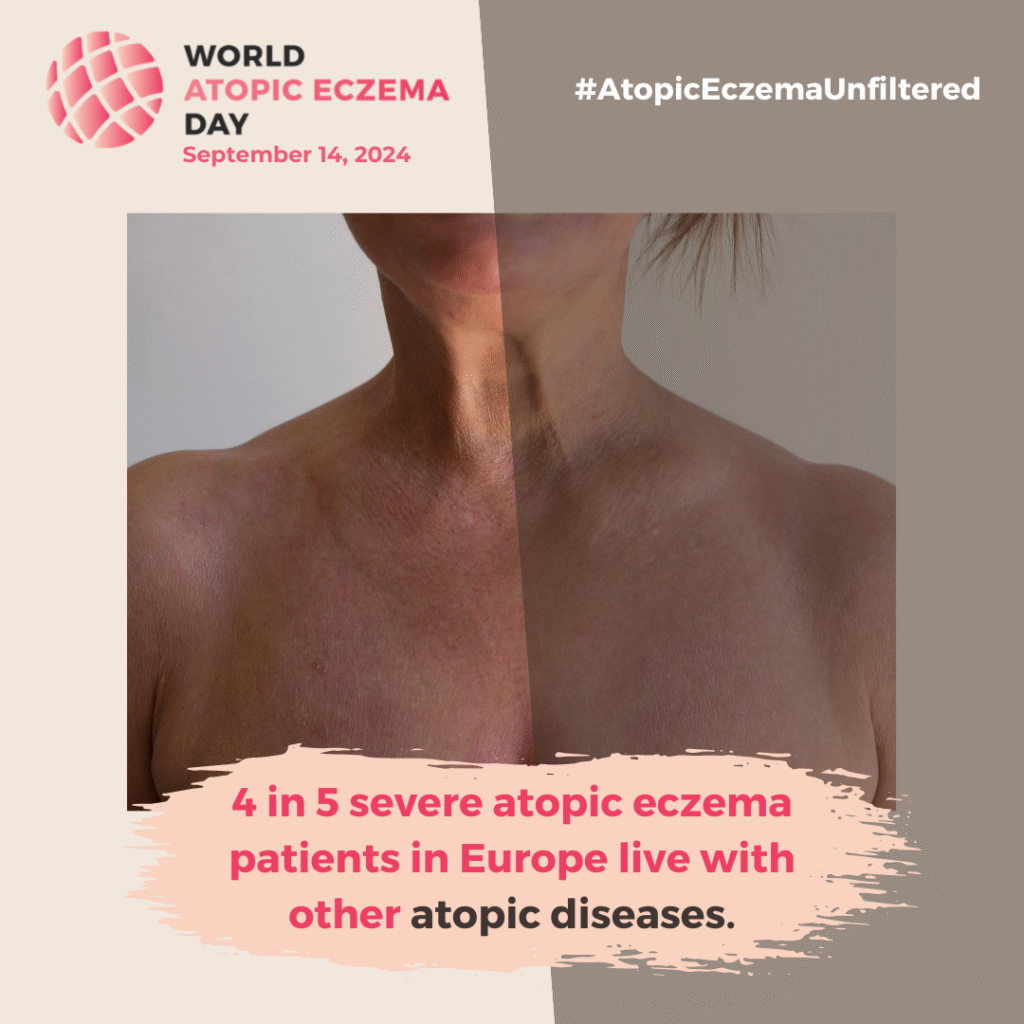
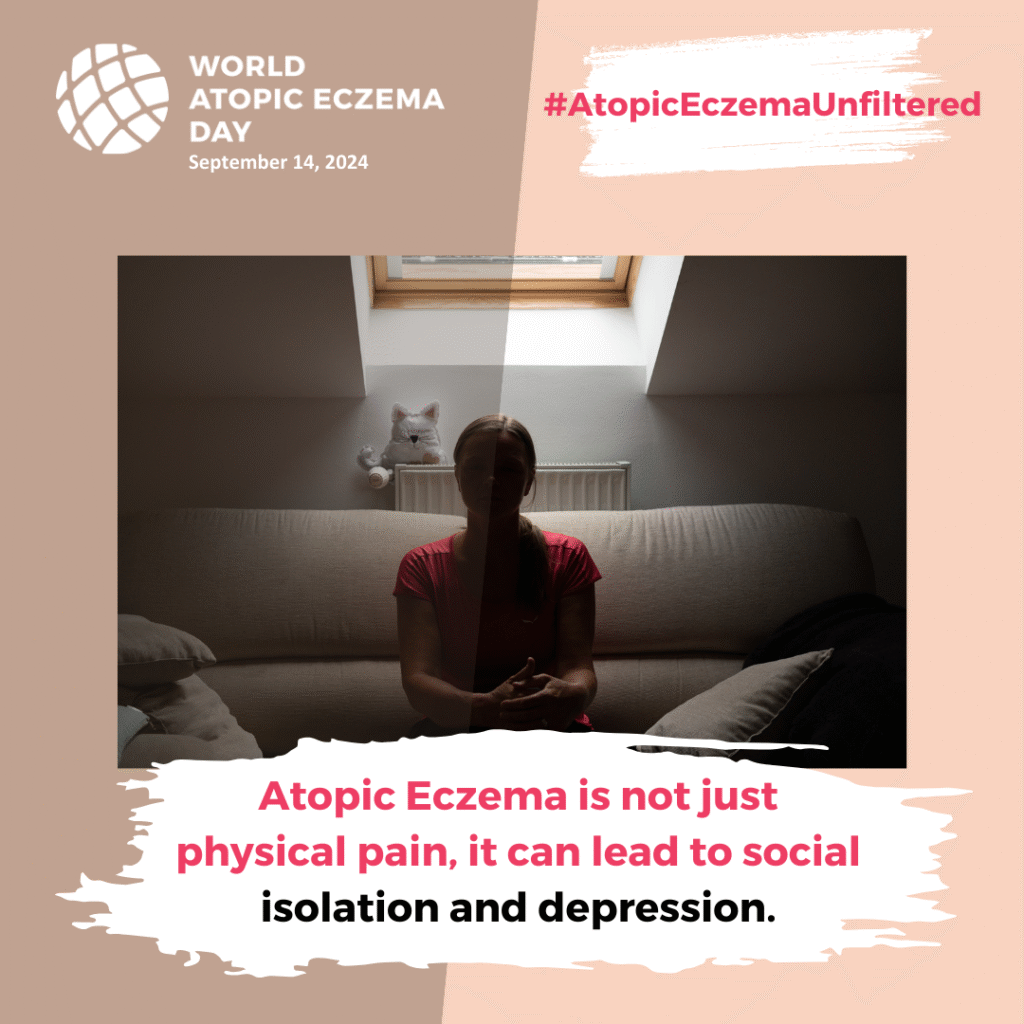

EFA also engaged with MEP András Kulja (EPP/Hungary), who not only supported the campaign on social media but also met with us to discuss the pressing issues faced by atopic eczema patients.
As part of the campaign, EFA continued its commitment to our atopic eczema community by providing financial support to help member organisations launch dynamic communication and advocacy initiatives for WAED 2024. Through personal consultations, social media campaigns, and local events, these initiatives provided patients with essential resources and access to professional dermatologic consultations, reaching over 100 patients directly and engaging more than 70,000 people online. The financial support has been provided to the following organisations (the full report on the EFA Community activities organised for WAED 2024 is available here):
Communication support :
- Institut Atopika, Slovenia
- Drustvo Atopijski dermatitis Slovenia
- Finnish Allergy, Skin and Astjma Federation
- AAA Association of patients from Bosnia and Herzegovina
- AEPNAA, Spain
- VMCE, Netherlands
EADV Congress Amsterdam
For the first time, the #EFACommunity gathered at the EADV Congress together with our members Vereniging voor Mensen met Constitutioneel Eczeem (VMCE) from the Netherlands, Društvo Atopijski dermatitis (Slovenia) and Zavod Atopika (Slovenia), strengthening our collective voice for atopic eczema patients. In the Patient Organisation Area, we highlighted the Atopic Eczema Burden Report and Atopical Lives multimedia project, reinforcing the urgent need for better care. We engaged with healthcare professionals, participated in the Global Skin Matters event and strengthened our community bonds with a dedicated EFA members’ dinner in Amsterdam.
GUIDE asthma
Although more than 30 million people in Europe living with asthma, educational material for patients is not always present or accessible, as confirmed by a survey conducted by EFA in 2023. To contribute to filling this gap, we continued working to promote and improve the EFA AboutAsthma.org website. This is an innovative, science-backed tool, co-created with patients, designed to improve health literacy and empower them and their caregivers by providing practical tips for symptom management, asthma action plans, and lifestyle guidance. Thanks to the collaborative effort of the EFA Community, in 2024 EFA led the translation of the website into French, Italian, and Spanish, ensuring wider accessibility to lay, trustful asthma education materials for patients worldwide.
On World Asthma Day 2024, in alignment with GINA’s international theme “Asthma Education Empowers”, EFA strengthened its commitment to asthma education by increasing the visibility of the AboutAsthma.org website and promoting its translations through an online campaign. We developed and shared with the EFA Community a toolkit and communication resources, which allowed them to disseminate information and engage their communities, contributing to a unified effort to improve asthma education and management.
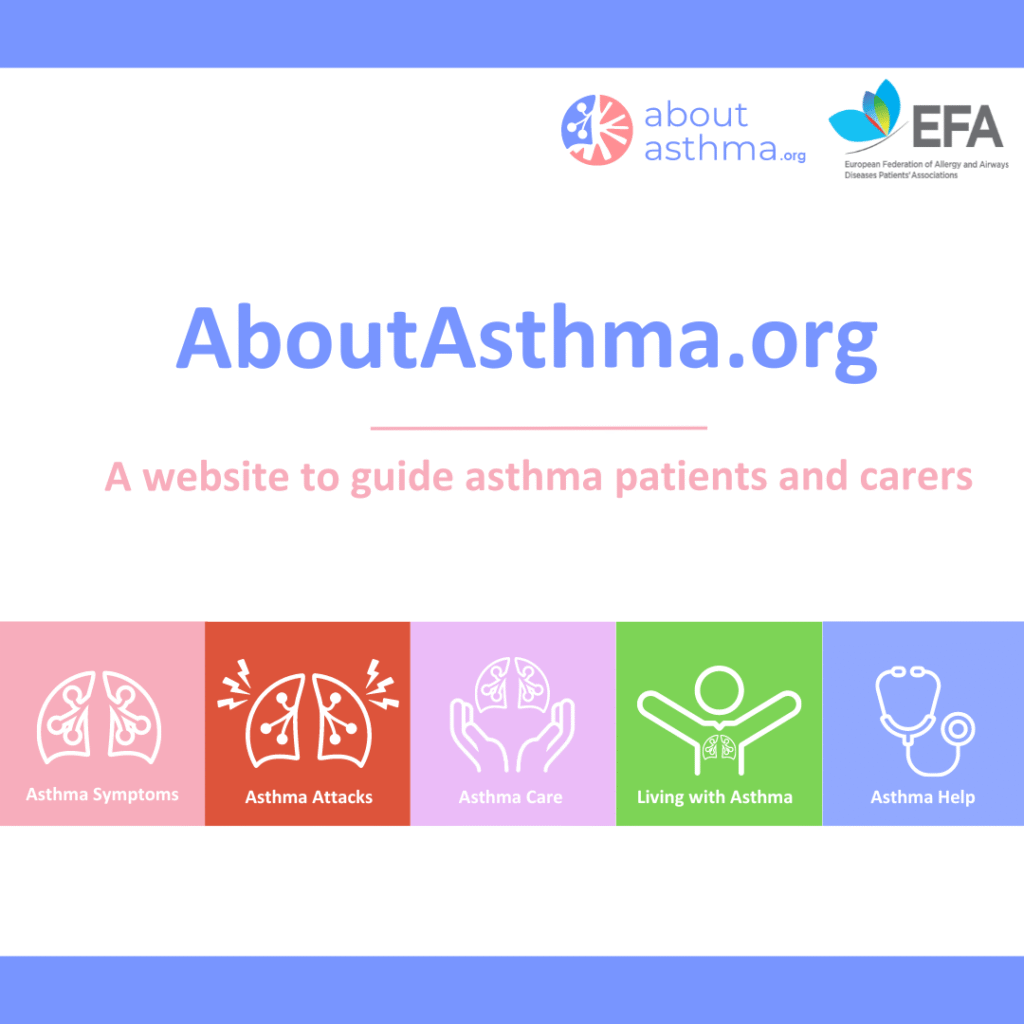
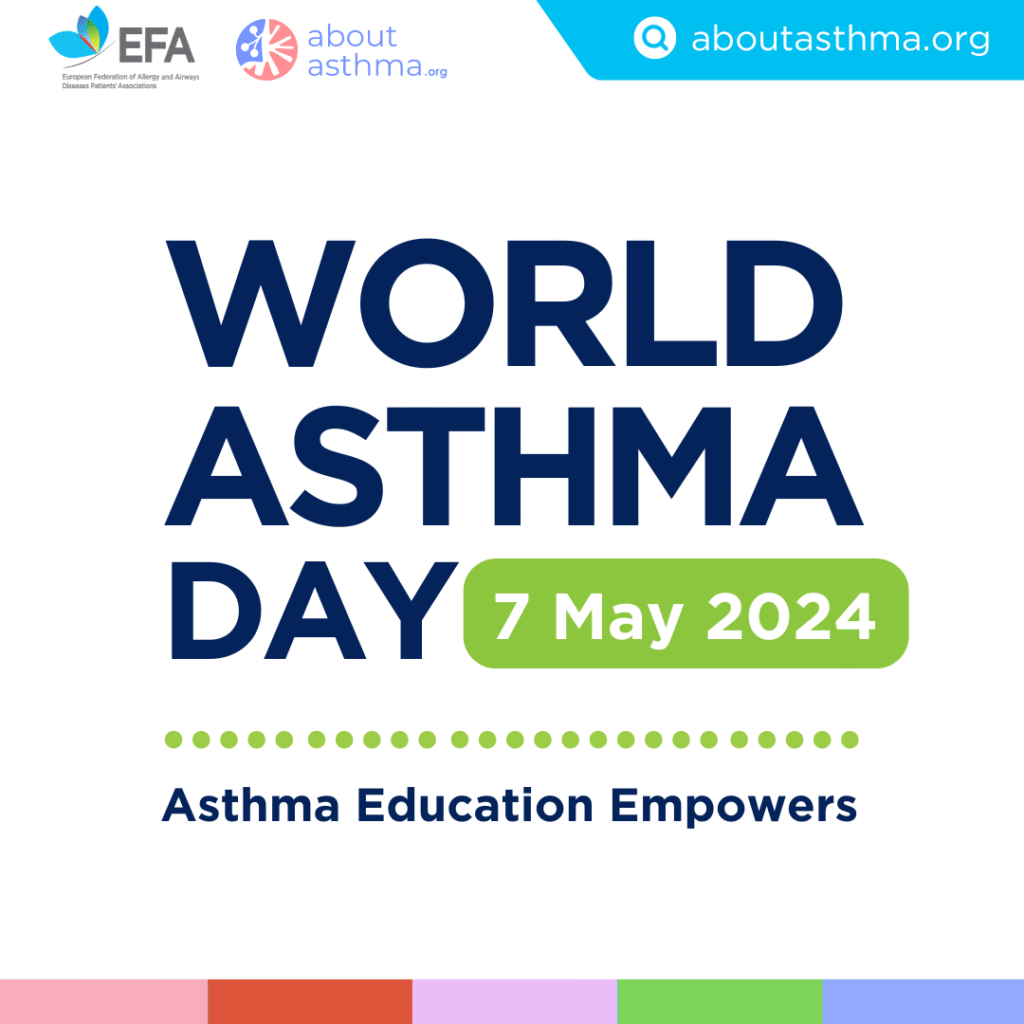
COPD Beyond Care
Chronic Obstructive Pulmonary Disease (COPD) is one of the most common long-term respiratory conditions and the third leading cause of death worldwide. In 2024, EFA kept raising the bar to achieve optimal standards of care for COPD patients, in particular through the publication and dissemination of the new report “Raising the Bar for Better Standards of Care for COPD”. Building on data from 19 European countries, the report reveals critical gaps in COPD prevention, diagnosis, and treatment. It outlines strategic recommendations to improve COPD care across Europe such as prioritising prevention and early detection, strengthening primary healthcare systems, and ensuring equitable access to quality treatments. It builds on EFA’s 2013 COPD Minimum Standards of Care report and has been a collaborative work with the EFA COPD Working Group and the EFA Community to ensure patient needs were accurately included.
In 2024, EFA also conducted an initial desk research that will support the development of the next milestone of the project: the COPD barometer. Taking the 2013 report as baseline, the barometer will help capture the current state of care, support, and access to treatment for COPD patients across Europe.
On World COPD Day 2024 EFA run a social media and email campaign under the hashtag #COPDStandardsOfCare to promote the report, raise awareness about the daily burden for COPD patients and call for urgent policy action based on the recommendations highlighted in the report.
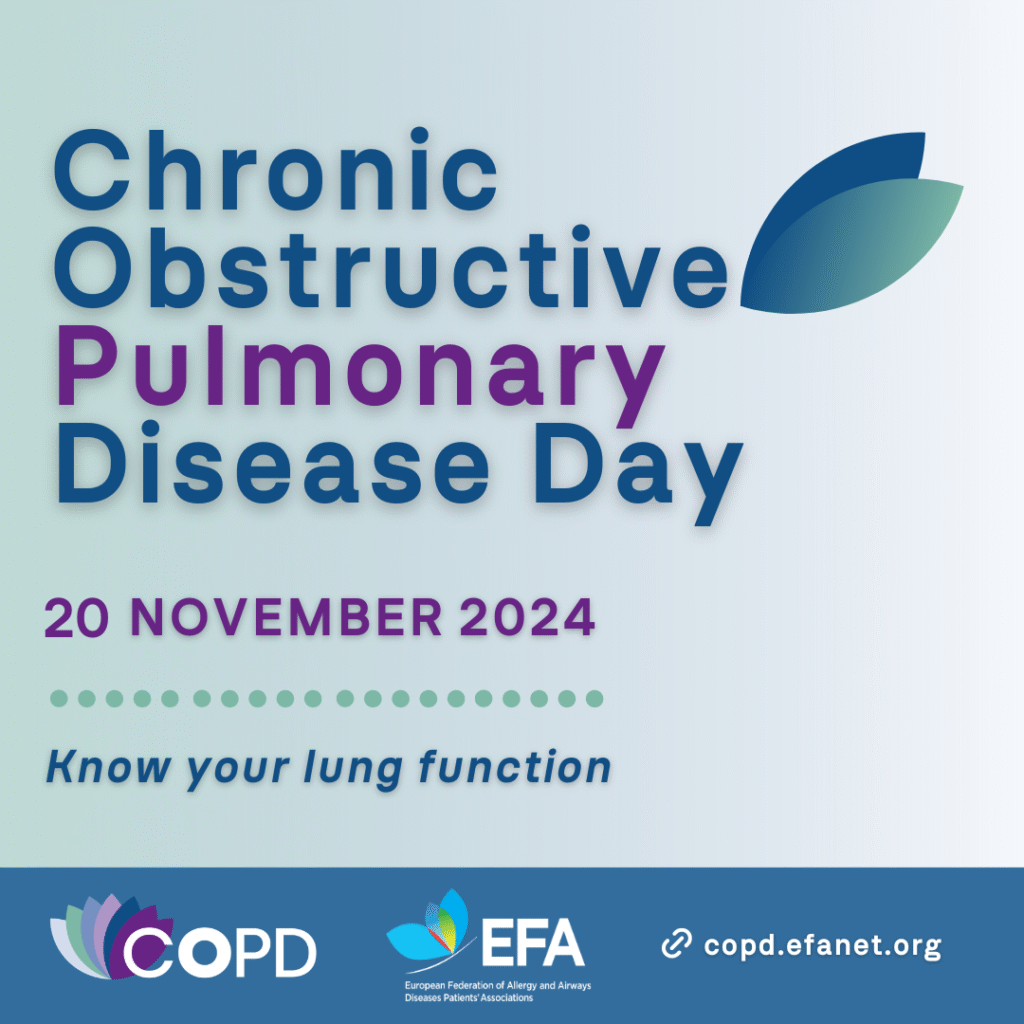
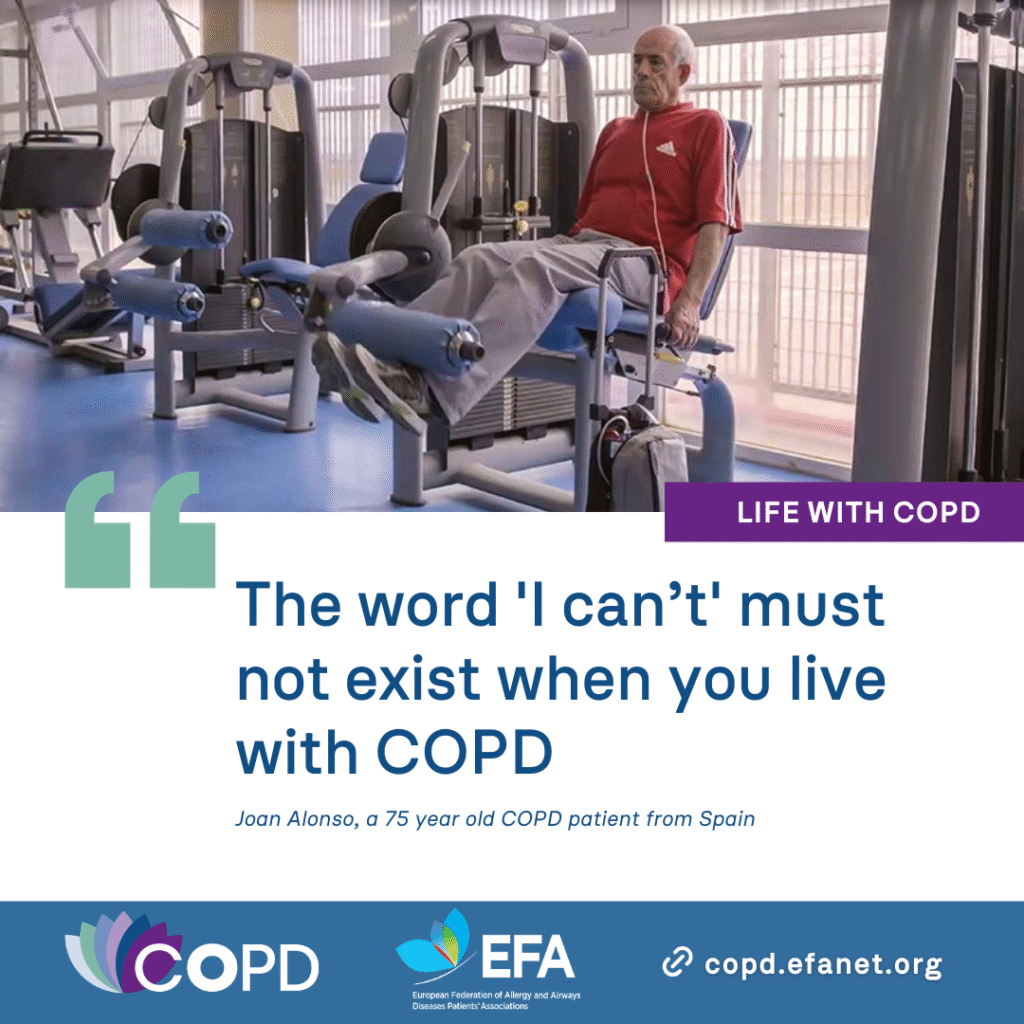
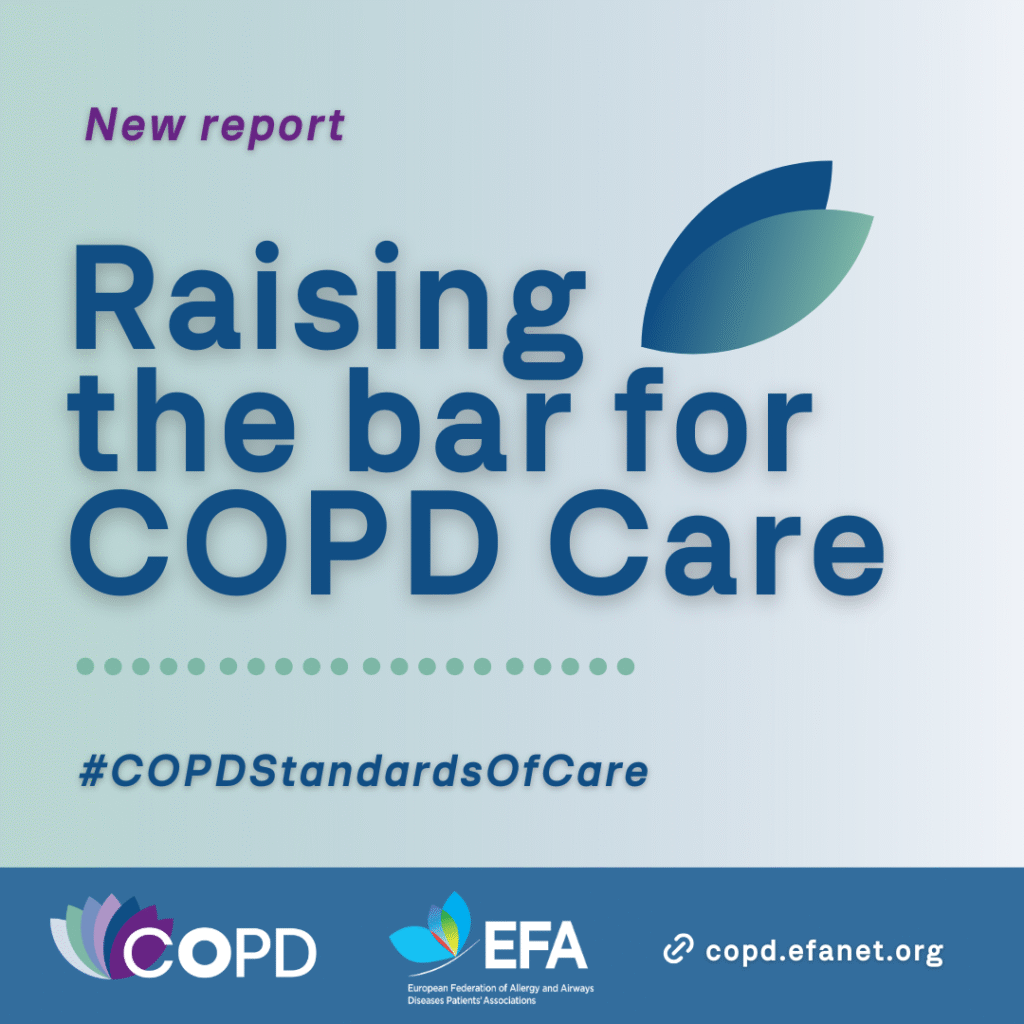
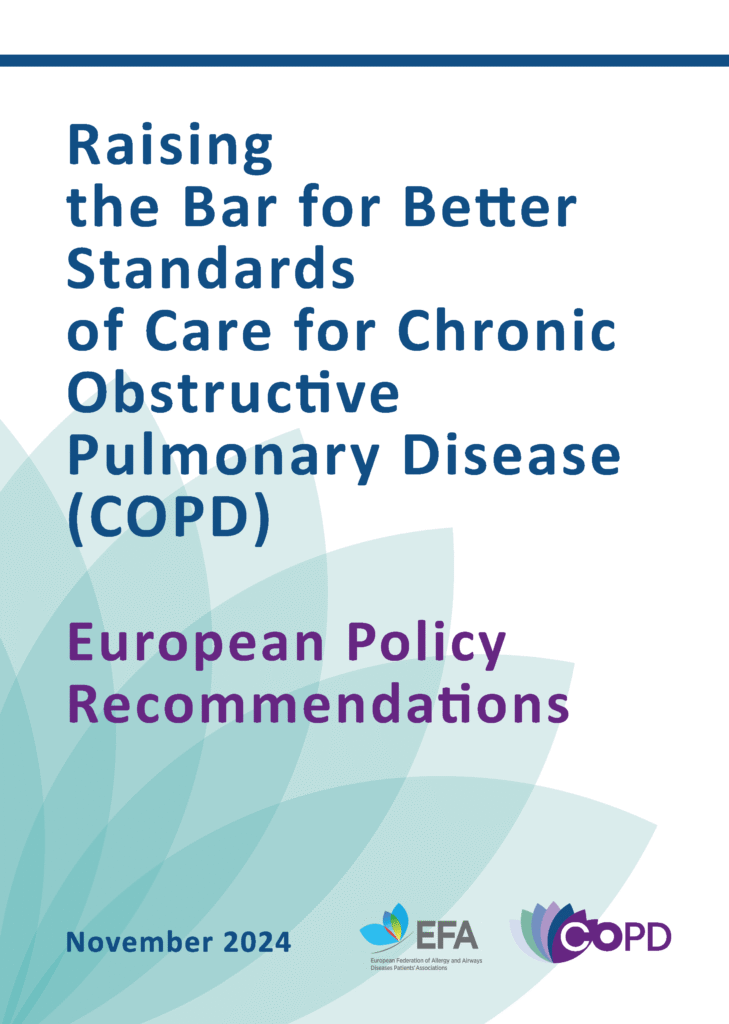
Acknowledgements
We extend our heartfelt gratitude to the EFA COPD Working Group Members for their invaluable insights and national perspectives, which have shaped the activities of this project. Our deepest thanks go to the volunteer patient experts from Associação Portuguesa de Pessoas com DPOC e Outras Doenças Respiratórias Crónicas (Portugal) and representatives from Österreichische Lungenunion (Austria), Fédération Française des Associations et Amicales de malades, Insuffisants ou handicapés Respiratoires (FFAAIR, France), Samtök lungnasjúklinga (Iceland), COPD Support Ireland (Ireland), APS Respiriamo Insieme (Italy), Federación Española de Asociaciones de Pacientes Alérgicos y con Enfermedades Respiratorias (FENAER, Spain), Riksförbundet HjärtLung (Sweden), LongFonds (the Netherlands), and KOAH Hastalari Derneǧi (Türkiye).